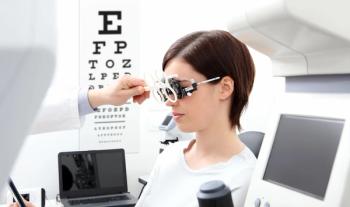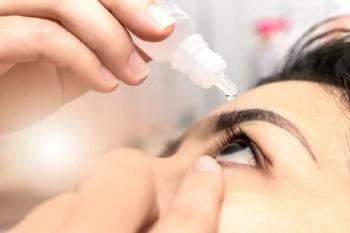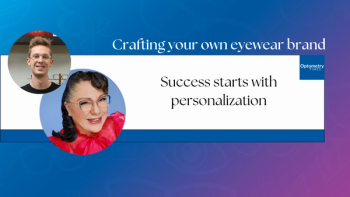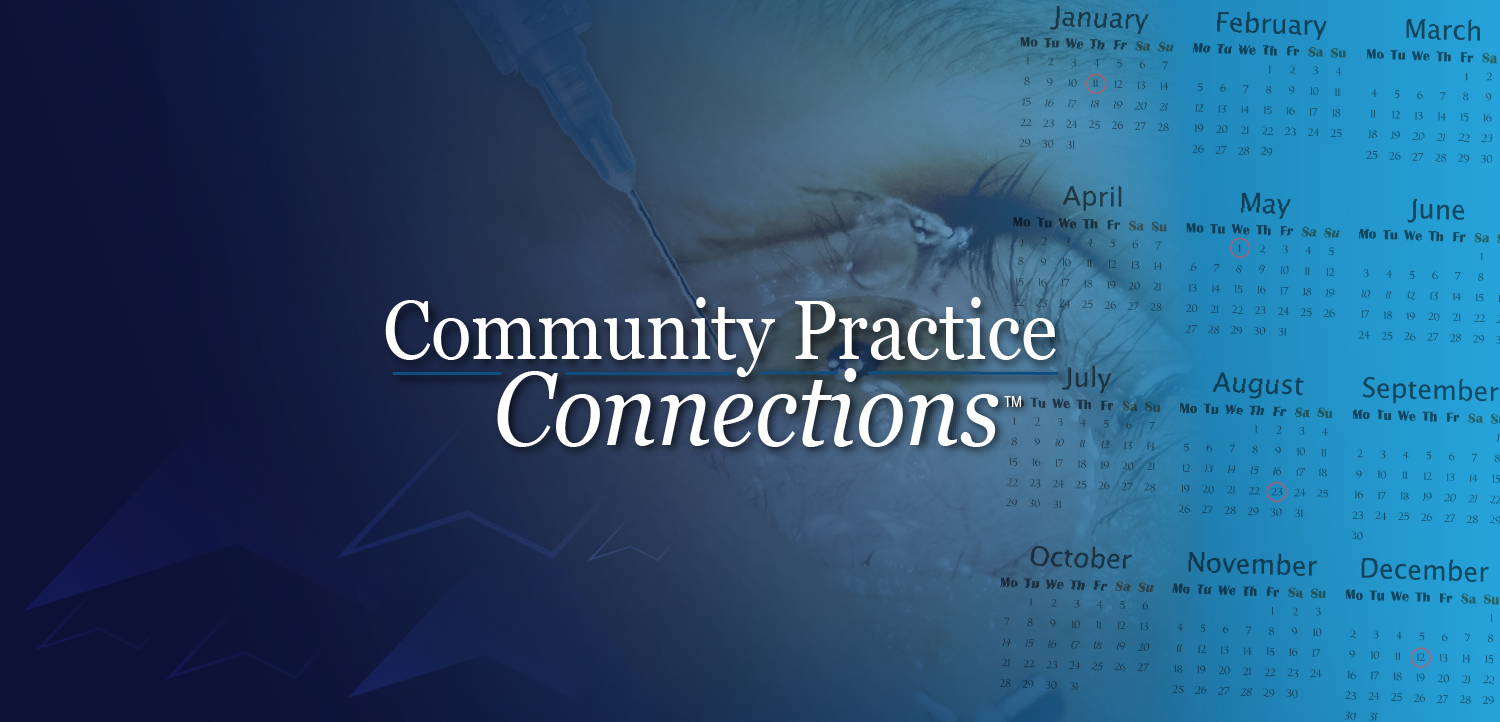
Q&A: Nazanin Galehdari, OD Owner of EyeMax EyeCare, Murray, UT
I was born in Iran, but I grew up in Salt Lake City. My father was a judge in Iran, my mom was a nurse and a hospital administrator
Where did you grow up?
I was born in Iran, but I grew up in Salt Lake City. My father was a judge in Iran, my mom was a nurse and a hospital administrator-they were both from a well-educated family and for them education was very important. They decided that the best education was at a boarding school in England. I had a hard time being an only child separating from my parents, so the dropoff at the boarding school ended up keeping us in England for four years. While we were there, the revolution started. We have family in the United States and decided to come visit. When things escalated in Iran, we decided it was better to stay here. I was the only child in boarding school who got to go home at night-it didn’t sit well with the other kids. [Laughs] I was probably four years old, and it was very strict. That early regimented style of education and teaching was important because it set the foundation for me as to what I had to do. You put one foot in front of the other. There is no whining, there is no “I don’t wanna do this,” you do it. And you do it without complaining. It was a good time. I just didn’t want to sleep over there. [Laughs]
How did you get from biology and chemistry to ocular diseases?
I knew that by the end of my degree in biology that I did not want to pursue the degree any further. I’m a social person; I didn’t like rats and all the other animals you work with in the biology lab. I didn’t like test tubes or the smell of the chemistry lab. I wanted to be around people where I could impact someone’s life, but being impatient, I wanted to see the results of what I was doing immediately. I applied to different programs, and I was lucky that I got accepted to law school in New York and dental school in Boston. During the same time, my mom had a health issue and I knew I wanted to be close to home. I chose SCCO because it was the closest school to Utah that allowed me to spread my wings. I said no to law school-it was at the University of Utah and I had already gone to school there for four years, I wanted to do something different. Optometry school seemed like the closest place geographically to my home. That’s how I fell into optometry.
What was it like to work with your spouse?
He had multiple leases with LensCrafters, I was working as an optician while I was waiting for my Utah state license, and he had a doctor who was leaving. The retail setting taught me a lot about speed, dealing with different types of people, and different interactions. It was a good opportunity for me to learn at someone’s else’s expense. [Laughs] It was good for him because as our relationship developed (we started dating several years later), I was more vested in the business than just a regular doctor he was employing. We were never in the same office simultaneously. He let me run the one office, which was the busiest one, pretty much however I wanted to. I had a sense of autonomy, this was like my mini-practice. I left the practice after 10 or 11 years. The practice had grown so much, there was a lot of patient loyalty, and I didn’t think it was a good fit for me anymore.
When did you know you wanted to start your own practice?
I was really fortunate in that I was able to develop a loyalty with some of the older patients. I felt like I didn’t have the time in that setting to devote to those patients. I wasn’t willing to compromise on what I was doing in the exam room, but that also meant that the exams were more complicated, they took longer, and that wasn’t the setting for me anymore. Remember, we were in a retail setting-the store wanted us to push out a glasses exam and yet I had patients with macular degeneration, cataracts, and glaucoma. I thought that the only way I could do it is if I worked for myself and set my own time and my own rules.
How does having separate practices affect your work/life balance?
After I was open for about two years, my husband, who’d always been happy with his setting, saw the difference between private and commercial practice. He saw the freedom and autonomy that I had being in my own office. He was very successful in commercial practice, but there is some freedom that you give up when you work in a corporate setting. When he saw the alternative, he decided he couldn’t do that anymore. So, he left his leases and joined me in my private practice. We’ve been together in my office now for four years. We still don’t work the same days because our styles and personalities are different, and I think it’s hard on the assistants when we’re both in the office together. One of us is always home with our child and my mom, and it seems to work out the best like that.
Should more ODs evangelize optometry to physicians?
I think that we get lazy as doctors. I hate to say this. I think we open our doors and expect patients to flood in, and that’s not how it goes. Yes, we have to market to patients directly. Yes, we have to be on these insurance networks. But you have to reach out to the community around you. My office is in a professional plaza; the person next to me is a dentist, the person on the other side is a chiropractor. A door down from me is a dermatologist, a family practice doctor, psychologist. Before I opened to the public, I had an open house and invited other professionals around us to come in. I’d also introduced myself to other doctors with a letter of introduction, a flower, and some treats. If you live in a community, we need to network with these people and be seen and see them. I make referrals to dermatology and primary care next door, and they make referrals to me. It’s best for the patient, and it’s best for our practice as well.
What would you advise a young OD who wants to follow your path?
I think it’s a different time now for optometry. I tell patients who ask about optometric careers that you need to be very realistic. It takes the right person with the right mind set to be successful in this field. Those days of you-open-shop-and-you-do-well are gone. You need to be innovative, creative, and unique to set you apart and allow you to be successful. Not every person is going to have that kind of personality or drive to do what needs to be done to be successful in optometry. There are other healthcare fields to be more successful in than optometry.
Related:
Do you have any regrets?
The only regret I have is missing so much of my son’s early childhood. If I could go back, I would probably not work as much as I did. This summer, my son said, “I really want to work in the office.” He’s 13 and 5’10”. He’s still a child, and he’s taller than me. I had him filing and answering the phone. Patients knew him, but he didn’t know the patients. It would catch him off guard: ”Mom, how do these people know me?” “Well, they know you because of your stories, pictures, and stuff we’ve shared with patients.” He wants to do what we’re doing. It scares me because I think it’s going to be a lot more difficult for him than it was for me.
What’s something you’d like to change about optometry the way it stands now?
The public perception of what an optometrist is and what an optometrist does needs to be more developed. We need to educate the public better at who we are and what we do. I think patients perceive optometrists as someone who fits glasses and contact lenses. I’m treating eye diseases. I may not be able to prescribe the hypertension medication but I’m the one who facilitates them seeing a primary care doctor and coordinating that care. My patients know what I do. I don’t think the general public knows what we can do.
Why a Lamborghini?
[Laughs] I wanted something I could share with my son. Why not fast cars? The Lamborghini community is small-maybe 4,000 cars made in a year-so everyone knows around the country who has these cars. This is the second one I’ve had. It’s 2015 Lamborghini Aventador roadster. My other one was a Lamborghini Murcielago. They’re both V12 exotics. Am I a speed queen? Absolutely not. It’s just fun to do this with my son. We go on groups drives and to car meets and car shows. It’s something he enjoys and we can do together. As I’m getting older, little bit of fear has crept in. I don’t want to have my child be an orphan because of some stupid decision of going this fast. The dualities of life, right? Got this super-fast car, but I’m afraid to go super-fast because I don’t want to set a bad example for my child and I don’t want to die.
What’s the craziest thing you’ve ever done?
I bought a house without telling my husband. [Laughs] My husband and I had just watched this Travel Channel show about a community [Lake Las Vegas] that was being built out in the desert. So, my mom and my son and I went to Vision Expo, and we drove out to see it. It was beautiful and expensive. So, I came back and told my husband that I would really like to have a home there. He said the market’s too hot there, it’s crazy. Fast forward a few years, the market crashed all over the country. Because I knew how he felt about it the first time I brought it up, I didn’t mention it. I put an offer on a house without seeing it in person. And it was accepted. I surprised him with a trip to Vegas and showed him the house that we owned. [Laughs] It turned out OK, he enjoyed it.
Related:
Newsletter
Want more insights like this? Subscribe to Optometry Times and get clinical pearls and practice tips delivered straight to your inbox.
















































.png)


